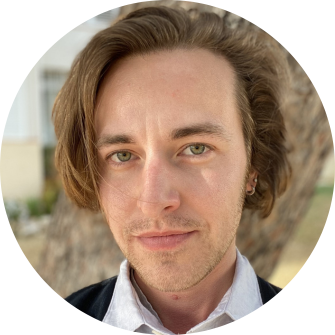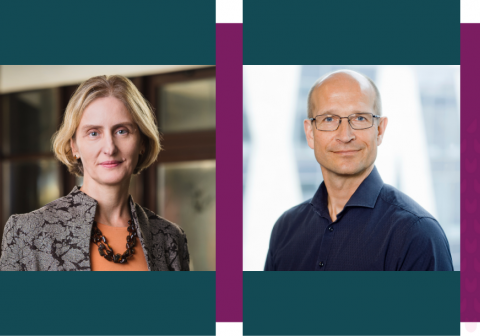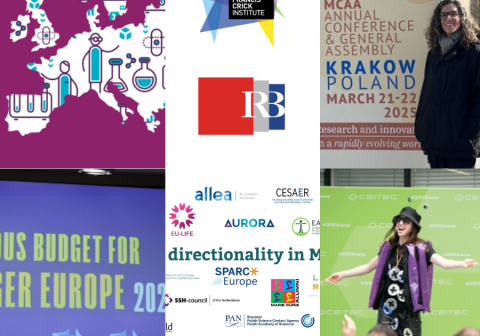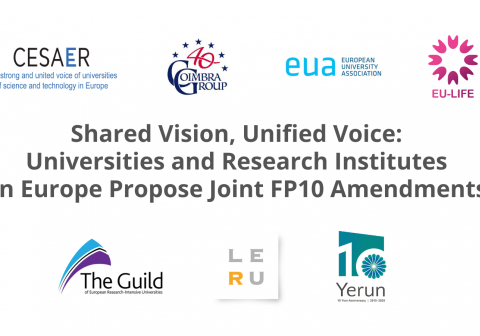We talk to Miles Lizak, awardee of the EU-LIFE/Nature Essay Contest: Utopia Institute of Research
Recently we talked to Miles Elliot Lizak, one of the awardees of the EU-LIFE/Nature Essay Contest: Utopia Institute of Research, about his career, the creative process for writing his awarded essay and his participation in the EU-LIFE 10th anniversary conference Envisioning the research centres of the future.

Congratulations and thank you very much for taking part in our essay contest! Could you tell us a bit about yourself? Why did you decide to enter the contest?
Thank you for running the contest!
A bit about myself… I drink too much coffee and I wilt if I don’t get enough sunlight, so I am fortunate to live in Barcelona, where those things are plentiful. My desk is very well-organized, but usually covered with cat hair (my cat’s name is Florence and she is wonderful). I am from the United States, but I came to Barcelona to study for a master’s degree and fell in love with the city. I love stories, and writing fiction is my great passion.
When I found the call for essays on the EU-LIFE website, I was so excited - it isn’t every day that you find a life-sciences research organization asking for creative writing.
It seemed like a perfect opportunity to combine my love of storytelling with my experience in research. I saw it as a fun and interesting writing exercise - and maybe a bit of catharsis. I certainly didn’t expect to place in the contest.
In your professional career, you decided to move from biochemistry to environmental education. Do you think those are complementary? How does your scientific background affect your work in education for sustainability?
Chemists like to call chemistry “the central science”, which sounds conceited, but is in some ways true - it’s involved in every process on earth. So in a practical sense, understanding the chemistry behind the concepts - from biological and atmospheric processes to materials and energy science - is absolutely helpful in teaching about environmental sustainability.
In a more abstract sense, I studied biochemistry because of the sense of wonder I felt when exploring the subject. I still feel that wonder, and appreciation for the intricacies of life. I like to think that shines through when I teach, and in the teaching methods I design. I hope I can share a bit of that with my students and the world.
As you stated during the Envisioning the research centres of the future conference, in your essay you removed the academic ego, the pride and competition in favour of support and collaboration. How did you come up with the idea for your essay? Was that the starting point of your writing process?
When I was in academia, it frustrated and saddened me to see the way that pride poisoned the atmosphere and weighed down the work. People treated each other terribly. It was as if researchers felt they had to tear their students and colleagues down to show their own intelligence, to maintain a hierarchy, or to protect themselves.
Of course, competition is not inherently a bad thing, and feedback (positive and negative) is essential for growth. But what I saw was not constructive criticism or healthy competition. It was a cut-throat atmosphere that turned mentors against their students and young researchers against each other. (This was in the US, where competition and individualism are culturally deified, so maybe the academic culture is different elsewhere in the world.)
In most cases, I was personally very fortunate to work with professors who were understanding and eager to help. They were also overworked and overscheduled.
Though I admit that frustrations with my own experience were the starting point, the process of writing this story was a fascinating exercise for me. It gave me an opportunity to explore past challenges in a way that was not just complaining about them, and permission to imagine a future in which things were different. It let me explore a dream of a research centre focused, not on knowing all the right answers, but on the transformative power of asking questions.
According to their feedback, members of the jury were taken aback by the sobering and cautious approach of most of the authors who entered the essay contest. Why do you think participants were more focused on exploring down-to-earth possibilities than futuristic utopias?
On one hand, I think a scientific education tends to be very focused on getting to the right answer. It’s possible that the essay writers felt pressure to give a practical and “correct” answer. Maybe we didn’t shoot for the moon because we were afraid we would be asked to show how we got there, and laughed at when we didn’t have a plan.
I think the real problem is that we have shut down the part of us that dreams, and we have done it out of self-defence.
Dreaming is dangerous. If you envision a positive future, you might start to hope for it, and it will hurt when it does not materialize. Our generation has been characterized by disappointment - we were set up to expect opportunity and prosperity, only to find that world no longer exists, and all predictions point to things getting worse. When we talk about our frustrations, we are so often met with a shrug and a “That’s just the way it is” that we accept it and stop imagining that it could be any other way. If you are faced with the pain of disappointment and dismissal time after time, you come to expect it. You lose the ability to imagine a truly positive future. In a way, our imaginations have atrophied.
I think the world of scientific research, in my generation especially, could benefit immensely from re-engaging its imagination. I hope other organizations are inspired by EU-LIFE’s example with the essay contest, and find ways to encourage scientists to stretch their creative muscles.
Read Miles Elliot Lizak’s awarded essay, Scientific enlightenment in the Stupid Questions Office, here: https://www.nature.com/articles/d41586-023-01856-7



